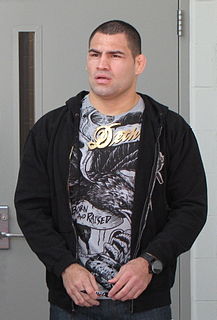A Quote by David Ogilvy
We admire people who work hard, who are objective and thorough. We detest office politicians, toadies, bullies, and pompous asses. We abhor ruthlessness. The way up our ladder is open to everybody. In promoting people to top jobs, we are influenced as much by their character as anything else.
Related Quotes
It's the people who work hard and earn big that keep the machine tipping for everybody else. If everybody else was equal down the bottom rung of a ladder, nobody would be on the ladder at all because it would break and everybody would fall off backwards. So you need people at the top to help pull those people up from the bottom. You can't take that and swing to the right. You can't have everybody living in the same ordinary $60,000 house because you may as well live in Russia, Bulgaria or some other Eastern block Communist nation.
I am always struck by how difficult it is for people to see how much cruelty they are bringing not only upon animals but upon themselves and their loved ones and other people, how much we are screwing up the planet, how much we are hurting our own health, how hard it is to change all that, how eager people are to make a buck at everybody else's expense - all those things are discouraging.
I was very conscious of the film industry - a lot of people, neighbors, worked in it. I actually grew up doing a bit of extra work myself. I was homeschooled, and it was a way that I could make money. My parents let us do these jobs, and I never got very far, but I was much more interested in what everybody else was doing, and I liked being on set.
As soon as politicians start climbing up the ladder, they suddenly become kings. I don't know how it works, but what I do know is that republics came to the world to make sure that no one is more than anyone else. The pomp of office is like something left over from a feudal past: "You need a palace, red carpet, a lot of people behind you saying, 'Yes, sir.' I think all of that is awful."
For example, the supporters of tariffs treat it as self-evident that the creation of jobs is a desirable end, in and of itself, regardless of what the persons employed do. That is clearly wrong. If all we want are jobs, we can create any number--for example, have people dig holes and then fill them up again, or perform other useless tasks. Work is sometimes its own reward. Mostly, however, it is the price we pay to get the things we want. Our real objective is not just jobs but productive jobs--jobs that will mean more goods and services to consume.



































